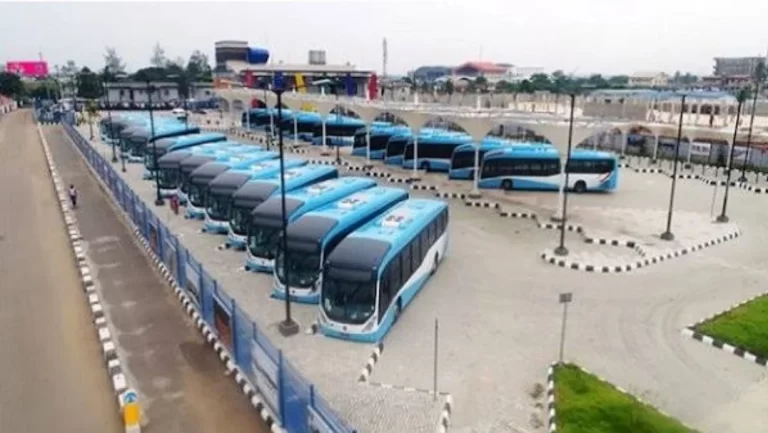The Lagos Metropolitan Area Transport Authority (LAMATA) has unveiled plans to deploy articulated buses along existing BRT corridors in a strategic move to boost passenger capacity and enhance efficiency across the state’s mass transit network.
LAMATA’s Managing Director, Abimbola Akinajo, made the announcement during a recent episode of Mobility Redefined, a podcast by transport technology firm Modaxo.
While no specific rollout date was provided, Akinajo said the initiative aligns with ongoing efforts to modernize Lagos’ transportation infrastructure and reduce dependence on informal transport modes.
“When we’re looking at BRT routes, obviously it’s about increasing the number of rolling stock we have, and beginning to look at the possibility of articulated rolling stock for the BRT routes because if they’re dedicated, then yes, we can utilize that,” Akinajo said.
Articulated buses, extended vehicles with a flexible joint, are capable of carrying significantly more passengers than standard buses and are expected to operate on designated BRT lanes once introduced.
Akinajo emphasized that the initiative forms part of a broader vision to transition away from the city’s dominant informal minibus system, locally known as danfos, which currently accounts for approximately 75% of daily passenger movement in Lagos. She estimated that over 75,000 such minibuses operate across the city’s road network.
The Lagos State Government, under the Strategic Transport Master Plan (STMP), intends to replace these minibuses with a fleet of 15,000 high-capacity vehicles over time.
The STMP also outlines the development of six rail lines, 14 BRT corridors, and over 20 water transport routes.
Currently, the first phases of the Blue and Red rail lines are operational, with work progressing on their respective extensions.
Highlighting the importance of integrating informal operators into the evolving system, Akinajo noted that some would be retrained or incorporated into regulated first-and-last-mile services that meet higher operational standards, including digital ticketing and GPS-enabled tracking.
She also revealed that LAMATA is advancing its commitment to sustainability through the adoption of cleaner fuel technologies such as compressed natural gas (CNG) and waste-to-energy solutions.
The agency has also begun implementing an Intelligent Transport System (ITS) to enhance route planning, service monitoring, and overall performance.
To improve multi-modal connectivity, Akinajo said new transport interchanges are being constructed to streamline transfers between buses, ferries, and trains.
She confirmed that service on the Lagos Blue Line is set to improve soon, with trains expected to run at 10-minute intervals during peak periods.

